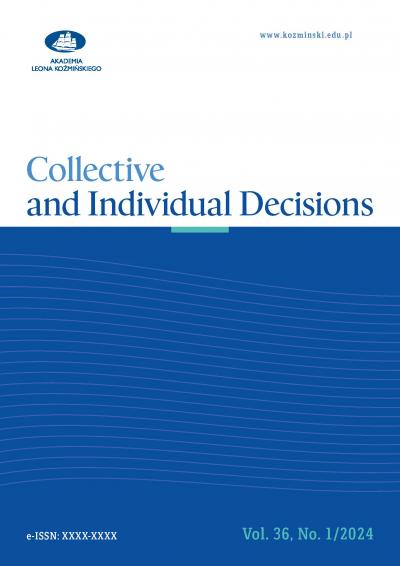Spatial Generalization Of Shapley Value For Simple Games As The Strong Point In The Chaos Of Ideology
Mikołaj Jasiński
Uniwersytet Warszawski
(20) Decyzje
DOI 10.7206/DEC.1733-0092.11








